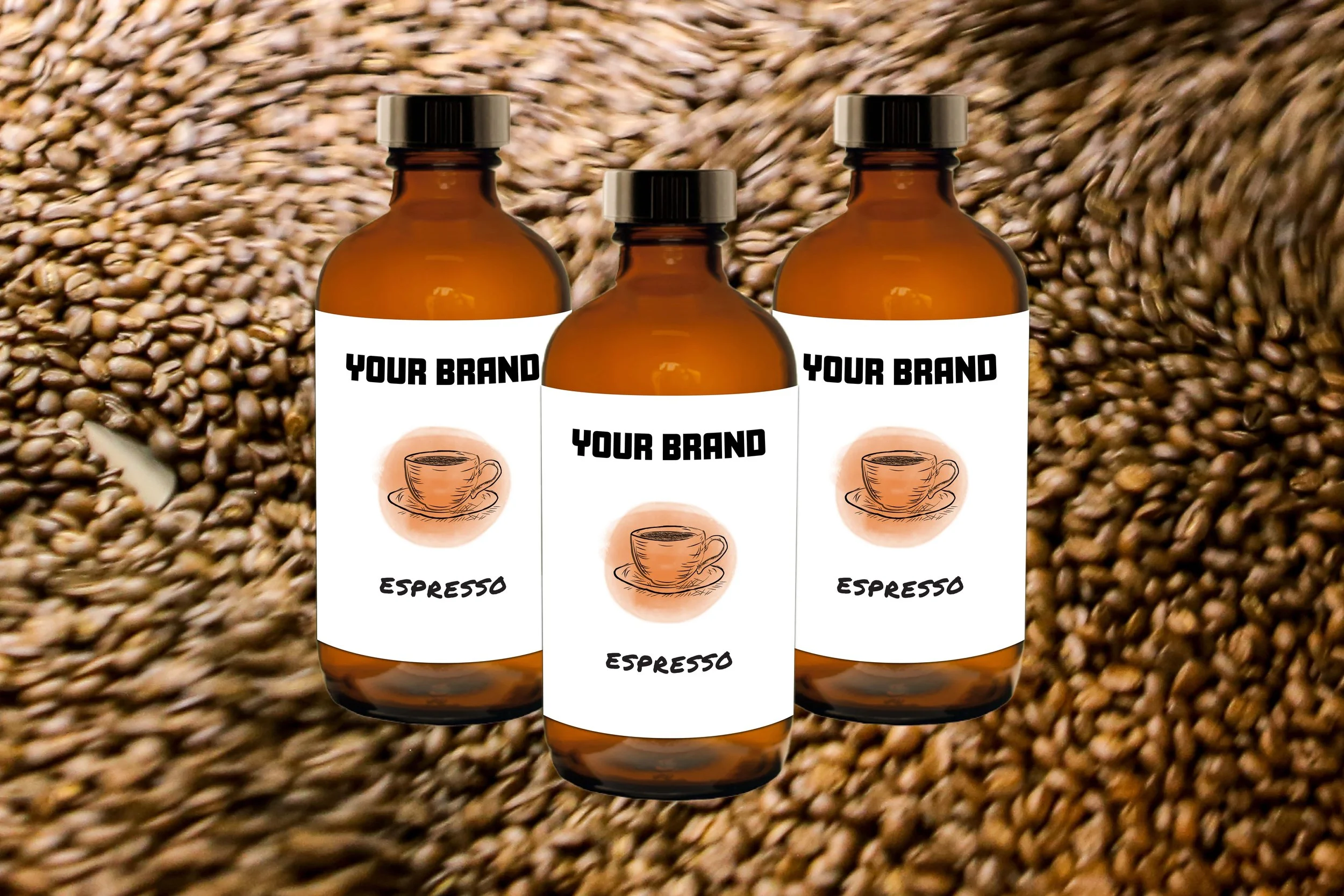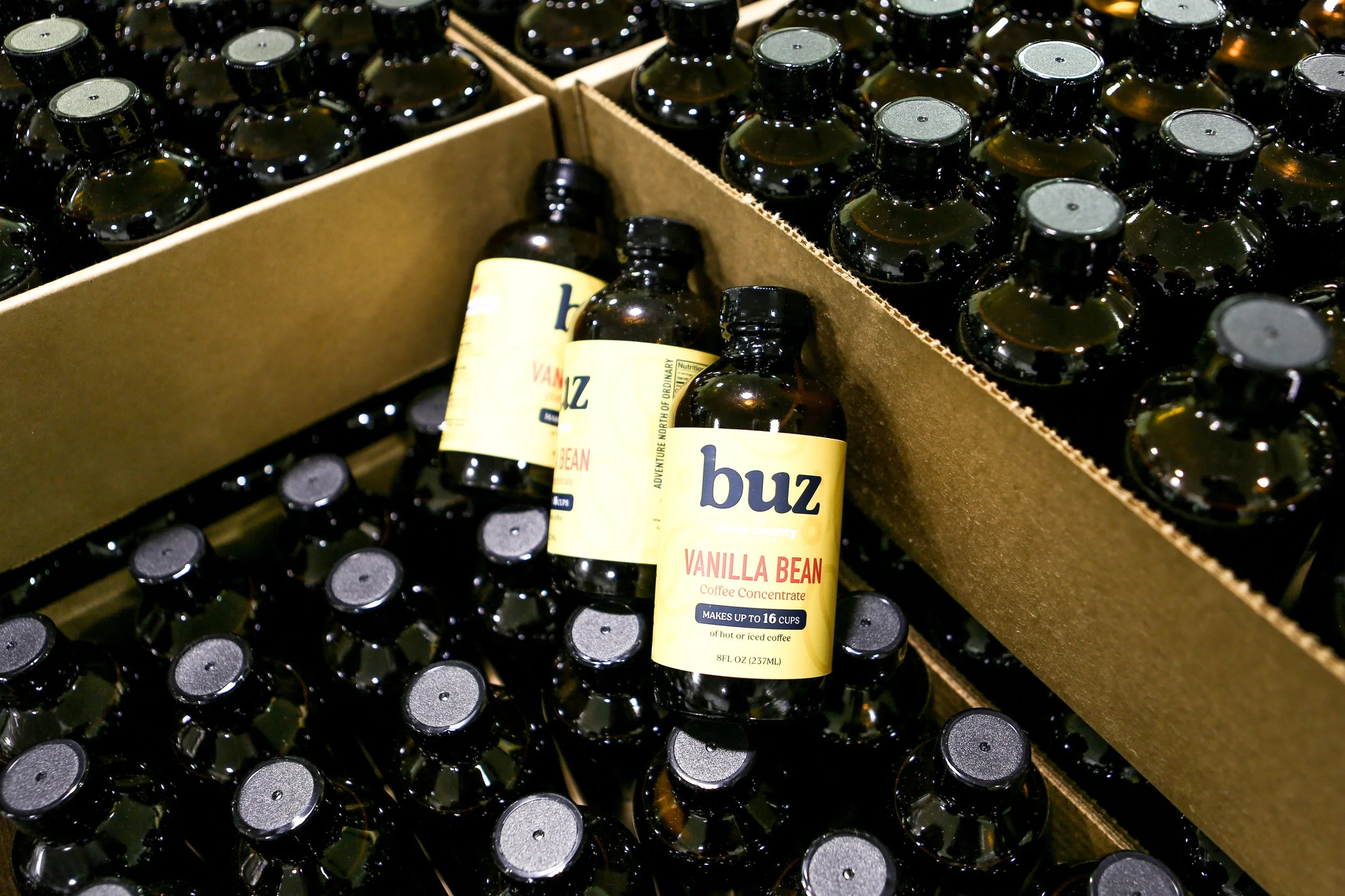White Label, Private Label, and the Coffee Industry
Coffee being bottled and labeled at Pragmatic Coffee & Tea
In retail and manufacturing, the terms white label and private label hold significant sway throughout many different industries. There is a good reason for that to be the case. Each label type helps shape how given products affect specific markets. Often confused with one another, these labeling strategies wield their impact on businesses and consumers alike. Their influence is especially noticeable in the fast-rising American coffee market (Also true in the global coffee market, but let's take it one step at a time).
Coffee was once a beautifully simple product for consumers to understand. The biggest question was, "Regular or decaf?" Or, "coffee grounds or whole beans?" Not anymore. We swapped simplicity for incredible specificity. The search to find the best-tasting coffee means that beans now come from all over the world. More importantly, at least to coffee drinkers, there are now many different ways to consume coffee: ready-to-drink coffee, cold brew, coffee extract, and many other terms that change how people drink coffee.
The article below comprehensively explores how private labeling and white labeling explicitly affect the coffee business and how a better understanding of the pros and cons of each label will help you grow your business.
What is a White Label Product?
White label coffee graphic in front of coffee beans.
Unveiling White Label
White-label products materialize when a manufacturer produces goods or services for retailers, typically unbranded or with generic branding. These retailers then rebrand the products as their own, allowing multiple entities to market similar or identical items under diverse brands. Essentially, these retailers are the resellers of a product that anyone can buy wholesale. Pragmatic Coffee & Tea has shelf-stable coffee extract options that are white-label products.
Main Characteristics of White Label
Uniformity and Standardization: White-label products often maintain consistent quality and specifications, fostering uniformity across multiple retailers.
Cost-Efficiency: Manufacturers benefit from economies of scale by producing bulk for numerous retailers, reducing production costs per unit. The cost-efficiency is a leading reason that new businesses often choose white-label products.
Retailer Branding: Retailers leverage white-label products to swiftly expand their product lines without substantial investments in research and development or manufacturing facilities.
Applications of White Label in Coffee
In the coffee industry, white-label strategies manifest in various forms:
Bulk Coffee Roasts: Manufacturers produce coffee beans in bulk, allowing retailers to repackage and brand them as per their specifications.
Coffee Equipment and Accessories: From brewing machines to mugs, manufacturers offer unbranded items for retailers to customize and market under their brands.
What is a Private Label product?
Exploring Private Label
Conversely, private-label goods are tailored exclusively for a specific retailer or distributor. Each retailer collaborates with manufacturers to craft unique products, packaging, and branding, creating an aura of exclusivity and differentiation in the market. This process creates a product that is distinct for the retailer and their brand. This approach allows you to fully customize every step of the process. Private label coffee is on the rise.
Characteristics of Private Label
Tailored Customization and Control: Retailers exercise substantial control over product development, shaping items to align precisely with their brand and consumer preferences. This granularity allows you to focus on the niche groups your product best caters to.
Brand Exclusivity and Loyalty: Private label items often aim to foster customer loyalty by offering unique features or quality that distinguishes them from competitors. In creating a new product you also create a new narrative for your brand.
Profit Margins and Differentiation: Due to reduced competition and increased brand loyalty, retailers can enjoy higher profit margins with private label items.
Applications of Private Label in Coffee
Branded Specialty Blends: Retailers collaborate with roasters to create signature coffee blends exclusive to their brand, catering to specific tastes and preferences.
Packaged Ready-to-Brew Coffee: Retailers develop their pre-packaged ground or whole bean coffee, differentiated by unique flavors or sourcing methods.
The Intersection with Coffee Companies
In the coffee industry, the divergence between white-label and private-label strategies significantly impacts how companies position themselves and engage with consumers.
White Label for Coffee Companies
Coffee companies often use white-label approaches to:
Expand Distribution: By offering unbranded products, coffee companies can reach a broader market through various retailers without diluting their brand.
Diversify Product Range: Manufacturers can produce a standard line of coffee beans or accessories that can be rebranded by multiple retailers, allowing for a more comprehensive product portfolio.
Private Label and Coffee Companies
Conversely, private label strategies in the coffee industry enable companies to:
Forge Brand Identity: Coffee companies can collaborate with retailers to craft exclusive blends or products that align with their brand ethos, enhancing brand recognition and loyalty.
Enhance Profit Margins: Companies can secure higher profit margins through exclusive partnerships by offering unique, premium products that resonate with their target audience.
The Evolutionary Path Forward
In an era where consumer preferences and market dynamics evolve rapidly, the convergence of white-label and private-label strategies within the coffee industry emerges as a potential trend. Now, please read that again because it should not be easily dismissed in the ever-evolving global coffee market.
Potential Convergence
Coffee companies may explore a hybrid approach, leveraging the advantages of both strategies:
Customized Mass Production: Companies could produce standardized coffee blends or equipment adaptable for rebranding while maintaining some customization for specific retailers. Private Label roasting can drive sustainability and white label can reduce waste.
Exclusive Collaborations: Coffee companies might forge selective partnerships, offering unique, private-label products to retain brand exclusivity and cater to diverse consumer preferences.
White Label Products vs Private Label
The distinctions between white-label and private-label strategies offer invaluable insights into the coffee industry's dynamic landscape. By understanding these similar strategies, coffee companies can navigate the terrain more adeptly, aligning their approaches with consumer demands, brand aspirations, and market trends.
Now that you have a better idea of the differences between private and white labeling, you can better decide what works best for you and your company.



